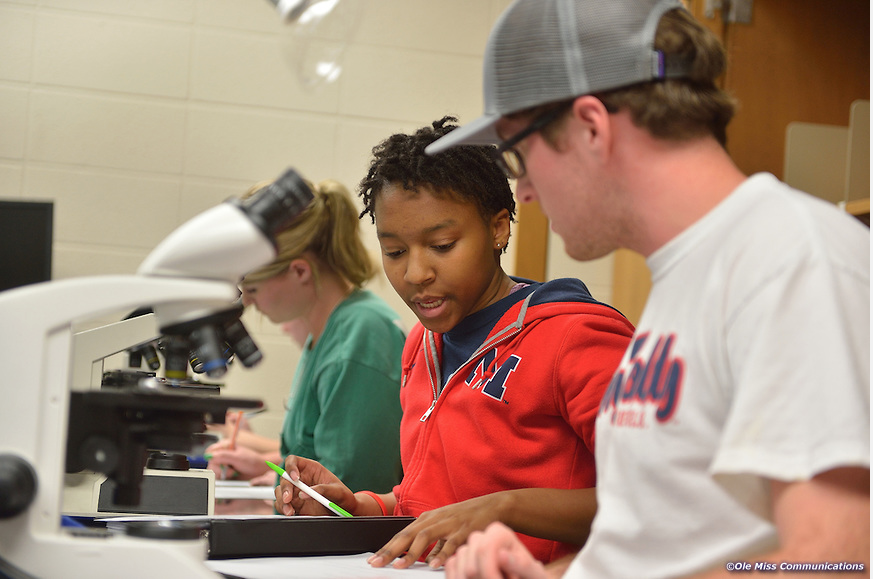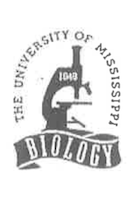About the Department

The Department of Biology is a broad-based department that consists of 22 tenured and tenure-track faculty, 13 instructional faculty, and educates over 800 undergraduate biology majors and 53 graduate students (PhD and MS). Our research faculty are conducting frontline research in many areas of biology, and have brought in an unprecedented level of extramural funding and created many research opportunities for students to actively participate in scientific discoveries and innovation. Construction of a new $175M STEM education facility on campus is reaching completion that will foster interdisciplinary opportunities to fulfill our commitment to inclusive excellence in biology education. The University of Mississippi and the Department of Biology are committed to building an inclusive and diverse university community (Pathway to equity plan: https://chancellor.olemiss.edu/pathways-to-equity). The University of Mississippi has been repeatedly recognized by the Chronicle of Higher Education as a “Great College to Work For.” The Department of Biology recognizes the importance of building a diverse and inclusive community.
MISSION STATEMENT
Our Mission: To advance understanding of living systems through research and education.
Our Core Values
The scientist’s mind: Being curious and asking big questions. If you know the answer, it isn’t the right question. If you do not know the answer, do the research. Being a scientist is a privilege earned through hard thought and hard work.
The mentor’s wisdom: Sharing experiences and leading by example. Encourage breadth, as this will increase the questions that will be asked and the tools that can be applied. Encourage depth, as this will sharpen those questions. Encourage imagination, as this will lead to true innovation.
The educator’s insight: Knowing that students are empowered through the skills they learn and the knowledge they gain. Great students can grow and develop through patience and encouragement. Each student is unique, necessitating flexibility in, and multiple pedagogical approaches.
The student’s inquisitiveness: Showing initiative to instigate learning experiences, including finding educators that are passionate and enthusiastic about their subject, who offer challenging and enlightening learning opportunities.
The robustness of diversity: Like any ecosystem, diversity within the department brings vivacity, strength, and resilience. Differences in experiences, perspectives, and approaches stimulate cross-fertilization and adaptation. Embracing diversity promotes fertile ground for new ideas to germinate and grow.
The Vision of the Department of Biology: To be a highly collaborative community of scientists working to generate a comprehensive understanding of living systems though multidisciplinary interactions.
DIVERSITY STATEMENT
The University of Mississippi Department of Biology is committed to creating an environment that fosters diversity, equity, and inclusion (DEI). This goal has two fundamental motivations: first, it is a moral imperative to critically examine and dismantle systems that allow or enable discrimination, inequity, or exclusion; second, scientific advances depend on novel solutions, creative ideas, and diverse perspectives, all of which are limited if our department does not fully support people from all backgrounds. We acknowledge the legacy and persistence of both overt and institutionalized discrimination based on race, ethnicity, religion, disability, veteran status, sex, gender identity, and sexual orientation. Our responsibility is to improve policies, procedures, and departmental culture to break down barriers to diversity, equity, and inclusion. As a department, our aims are to cultivate mutual respect, encouragement, and appreciation of every person within our diverse community of faculty, staff, and students and to initiate and promote inclusive and equitable research, education, and outreach efforts. To create such a culture, each of us must invest in learning about and addressing our individual conscious and unconscious assumptions. As such, we will invest in thoughtful and intentional efforts towards these aims.
The Department of Biology is committed to:
- Aligning the Department of Biology DEI aims with the College of Liberal Arts 10 in 3 Equity Plan and with those of the University of Mississippi Pathways to Equity.
- Interrogating our existing departmental policy and culture using a lens of diversity, equity and inclusion.
- Identifying barriers to recruitment and retention of people from marginalized and underrepresented groups in STEM, and remove these barriers through actions designed to reach explicit recruitment and retention outcomes.
- Creating an inclusive community that allows feedback from all constituents, including staff, graduate and undergraduate students.
- Educating ourselves about DEI issues through multiple outlets, learning about existing efforts, and openly sharing those resources.
- Maintaining accountability for progress towards these aims.
HISTORY

The Lyceum, photographed in 1861
Although the University of Mississippi began offering classes in 1848, there was no provision in the curriculum to include biology until 1870 when the Department of Science, Literature and the Arts was established with one botany and zoology professor.
The first biology classes were taught in the Lyceum in 1872 and focused on botany.
In 1903 the medical school was founded and the biology curriculum centered around premedical education.
 In 1956 the medical school moved from Oxford to Jackson and the Department of Biology became the sole occupant of the science building, which was located west of where Shoemaker Hall stands today and in front of Hume Hall. In 1963, Shoemaker Hall was built to house the Department of Biology and the science building was demolished.
In 1956 the medical school moved from Oxford to Jackson and the Department of Biology became the sole occupant of the science building, which was located west of where Shoemaker Hall stands today and in front of Hume Hall. In 1963, Shoemaker Hall was built to house the Department of Biology and the science building was demolished.
The University of Mississippi Field Station, 550 acres of an unusual combination of terrain, vegetation, and water resources located six miles northeast of campus, was obtained by the university in 1985, and the Department of Biology played a substantial role in its initial and ongoing operations.
Today, the Department of Biology offers diverse and adaptive teaching and research programs to meet the needs of undergraduate and graduate students.
A Brief History of Biology at the University of Mississippi (circa 1988)>>
